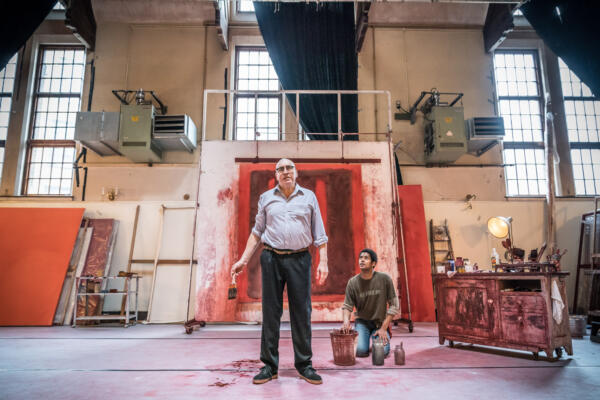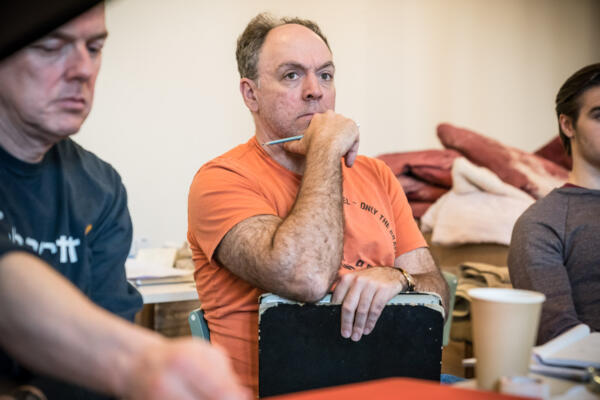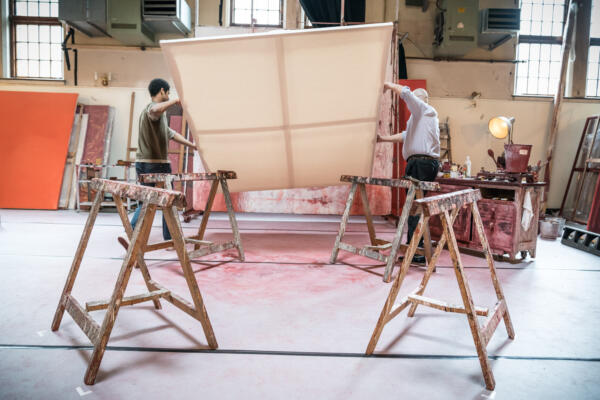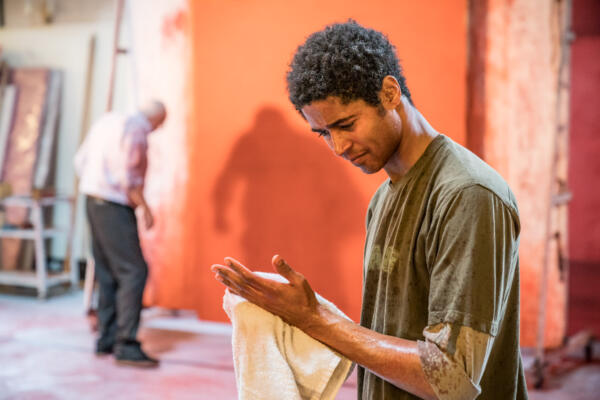Red | Inside the Rehearsal Room
Red– Week Three, Day One
It’s the start of the third week of rehearsals and several changes are discernable in the rehearsal room – from Fred’s shaved head, to more closely resemble Rothko, to an even greater concentration. Michael refers to the fact that they’re ‘heading into the middle of our rehearsal period’ and he proposes certain modifications to the space to prepare for the transition to the theatre, including drawing the curtains to give a greater impression of being in a darkened studio.
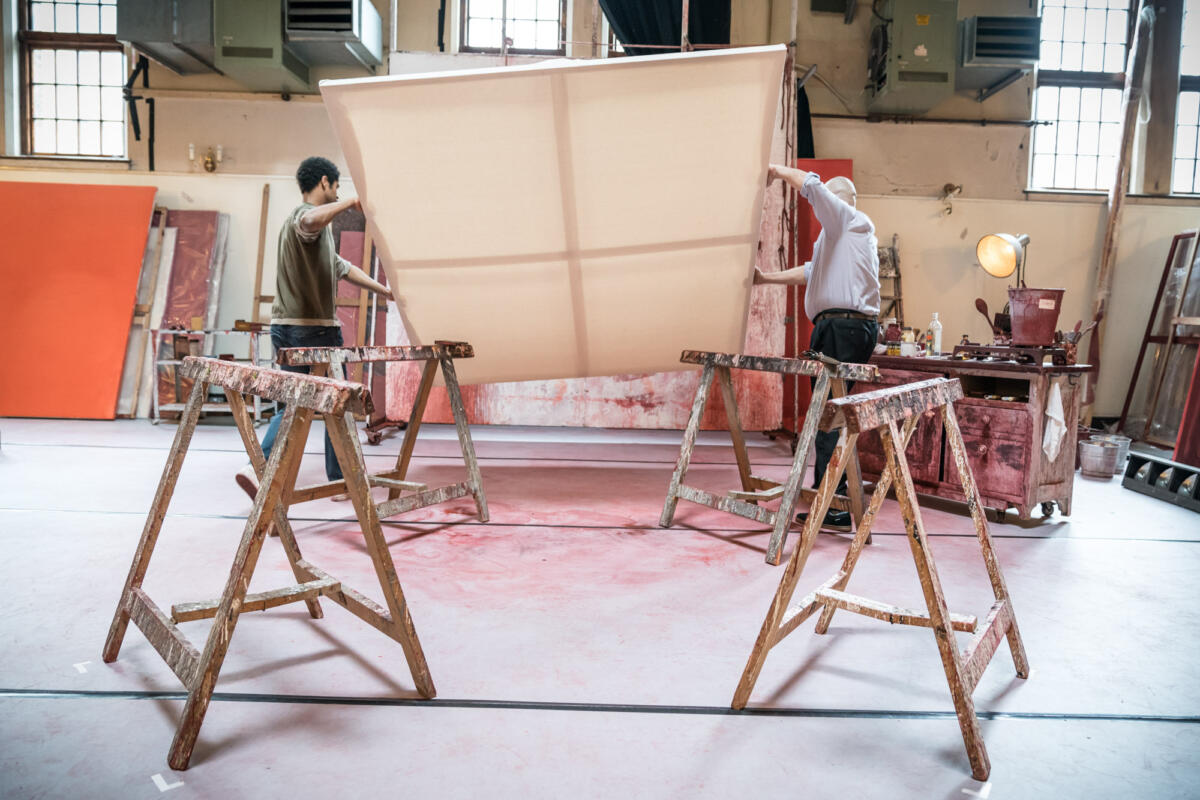
They start with the end of Scene Three, moving into Scene Four, concentrating on Rothko’s speech about Rembrandt’s painting Belshazzar’s Feast. ‘You choose to tell this story to get him (Ken) to stay, why?’ Michael asks Fred. Fred thinks it’s the closest Rothko comes to an apology, following his earlier outburst at Ken. ‘Are you saying you’ve fallen short as an artist – “You have been weighed in the balance and have been found wanting”?’ questions Michael. Is Rothko’s preoccupation with black – or rather ‘the absence of light… Like going dead’ – ‘about failing, falling short, not working hard enough, being too arrogant?’ Is this the example of Belshazzar, King of Babylon? Arrogance? Or a king who’s failed in his position?
Michael says to Fred: ‘You, Rothko, talk a lot about what makes a great artist but not so much about what makes a great human-being.’ He recalls the artists he has known in his own life and reflects that many of them were arrogant, although possibly this was an act of self-preservation – ‘Artists have to have an ultimate belief-system.’ They are different to playwrights, for example, as ultimately playwrights have to hand their work over to directors and actors. ‘There’s this thing hanging over all our heads,’ says Michael, ‘of being found out.’ An artist’s legacy relies heavily upon the people entrusted to manage it, he says, commenting that Rothko’s children maintained a ‘great estate’: ‘Unless the people who come after you manage your estate well your reputation can decline, even disappear.’

They continue by rehearsing the choreography of the scene change from Scene Three into Four. Michael wants to ensure they’re ‘getting the beats right’. He refers to a loop in the score, which has a separate cue, that would enable any delays in the transition to be covered by music. ‘I hate calling them “scene changes”,’ says Michael. ‘They’re definitely other scenes – time is moving on, weeks have passed, you’re changing, Ken’s voice is changing. I’d suggest to John Logan that he call them “4A”, for example, so we thought of them differently. The music leads the audience into a journey.’
The actors’ performances are growing all the time. ‘Very good indeed,’ says Michael after another runthrough. ‘You clearly made a huge leap with the words there. You were listening, it was a real dialogue, you drew us in.’ They’ll run a scene, or a moment from a scene, discuss it and then run it again. ‘Let me talk you through a few notes,’ Michael will say, ‘and we’ll do it again.’ He focuses on specific words with Alfie: ‘We need help with names like Chet Baker. I think you also have to pick out all those artists – Rauschenberg, Lichtenstein, Warhol…’ He encourages him to really challenge Rothko in their argument within this scene: ‘Put contempt into “You’re too much” so it’s getting a harder colour.’
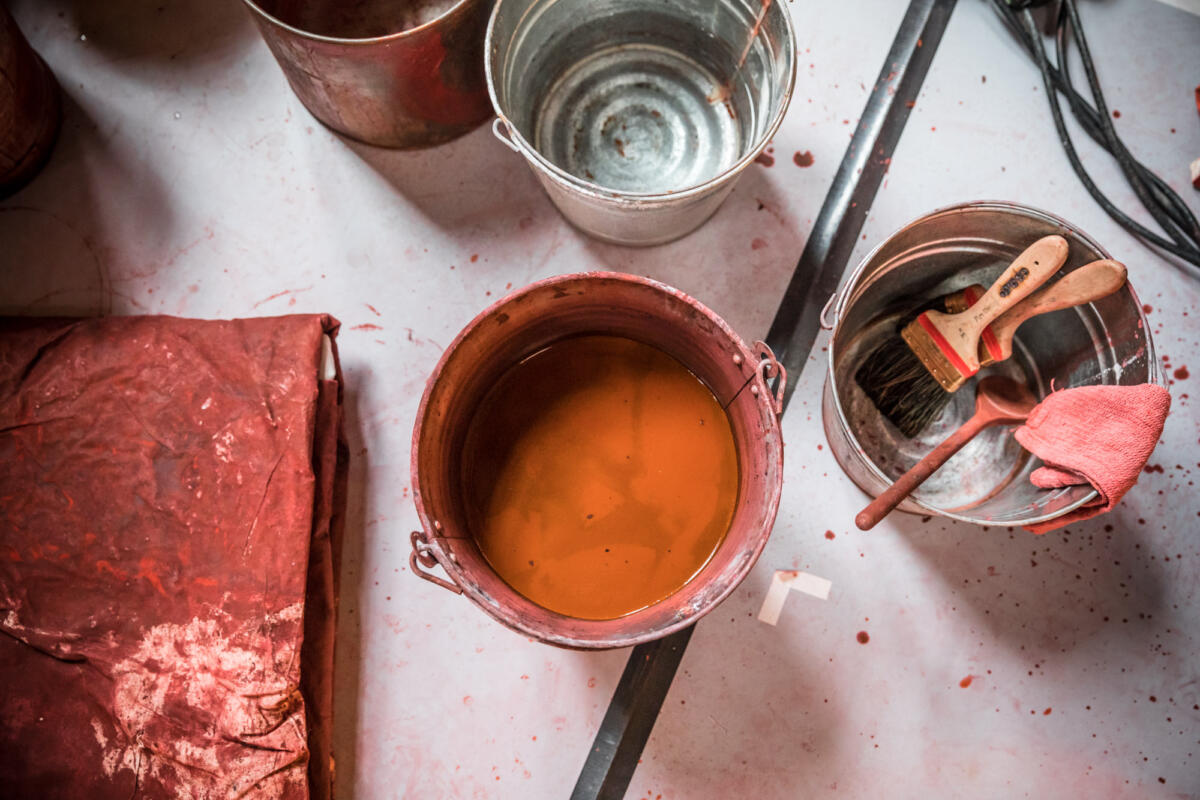
Michael listens carefully to the development of the characters’ speeches, in particular the thought processes within them, commenting to Fred: ‘You put that, “I’M NOT HERE TO MAKE PRETTY PICTURES!” into its own space within that argument.’ He draws attention to the author’s guidance within the text, particularly on certain words: ‘Really use John Logan’s underlining there.’ Later he considers the underlining of ‘place’ in Rothko’s line, ‘And most important they’re going into a place created just for them’. Ultimately, says Michael, the actors need to find these emphases for themselves.
Occasionally he’ll warn the actors about going too fast, encouraging them to take their time. He might suggest certain lines need greater emphasis – ‘It was just slightly sitting under’ – or encourage them to think their way through a speech more: ‘It’s going into the floor a bit. Let it become the start of your argument – “OK, you…”.’ Michael’s focus on being specific and precise with the words helps to avoid what the actors themselves identify as ‘generalisation’. ‘Find “A place of contemplation”,’ he encourages Alfie. ‘Pick it out.’ He praises him for his reaction to Rothko’s attempts to justify his acceptance of the Seagram commission: ‘You did a wonderful piece of listening on, “I didn’t enter into this capriciously, you know”.’
Watching and listening to Scene Four again, Michael’s curious why Rothko suddenly seems to change his opinion about Seagram towards the end of the scene. ‘Does my ear hear that you’ve reconciled yourself to people eating in that restaurant who don’t like your work?’ he asks Fred. ‘Just be the audience for a second – don’t we want to invest in you, that you believe in what you’re doing?’
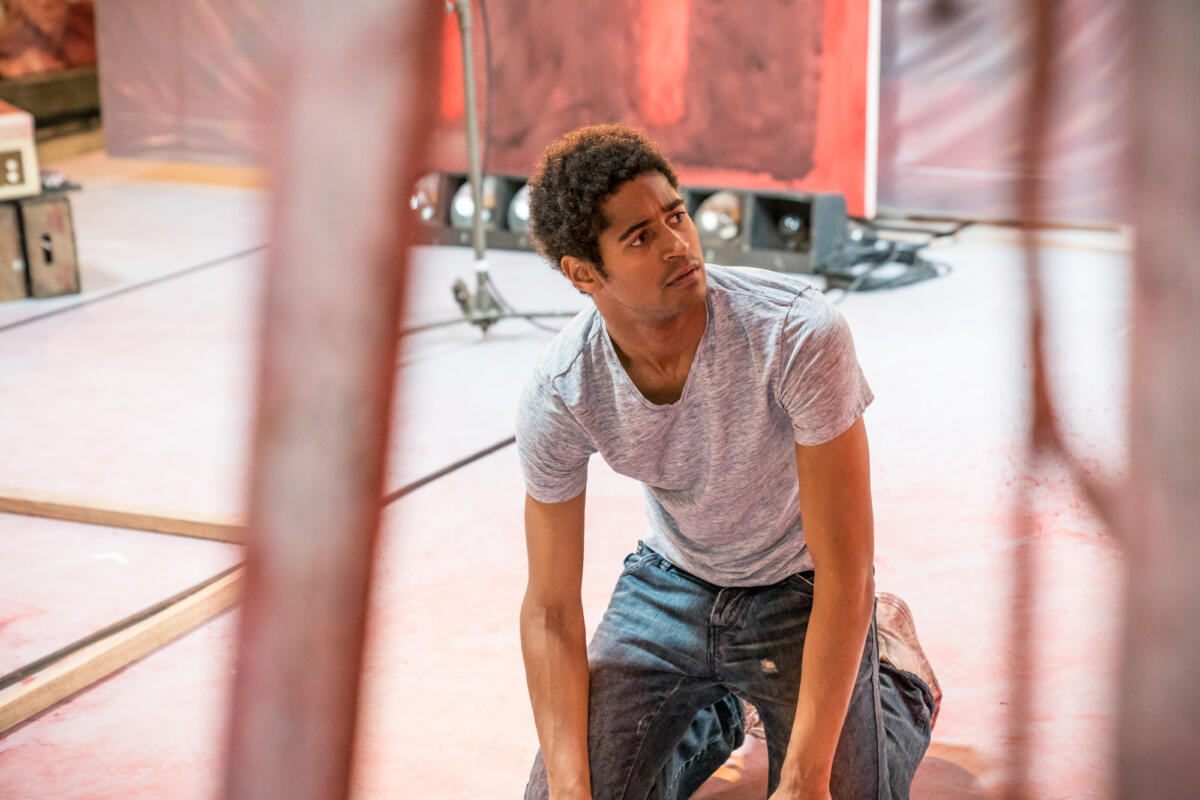
Sometimes his notes focus on very practical details, saying to an actor, ‘It would be quite nice if you found a reason for doing that, going up there, because it breaks up that diagonal’. In terms of the staging, Fred comments that a number of times his muscle-memory recalls the ‘old moves’. Occasionally an actor will want to reconsider some of their blocking: ‘Can I stay here for all of, “Is that what all this is about?”’
Michael wants to run Scene Four again. ‘Can we have another go at it and just take the time to get the intensity.’ They do it again and as they work through the scene change at the end, Michael calls out, ‘Stop there, I’ve just had an idea’. Rather than Ken helping Rothko move the paint-frame, Michael suggests he stand still as the canvas is moved towards him and his shadow falls across it – ‘So it becomes about Ken for a moment. It’s another little moment for him.’
